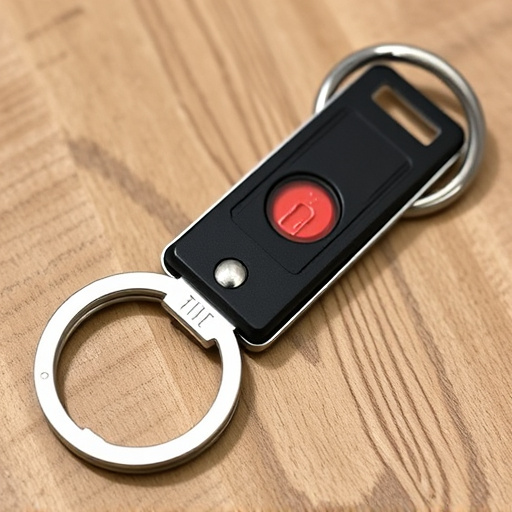When designing compact keychain defense tools, prioritize robust durable materials like stainless steel, carbon fiber composites, or titanium for superior strength, corrosion resistance, and longevity. Ensure ease of use with ergonomic designs and reliable trigger mechanisms. Safety and legal compliance are key; high-quality materials meet standards by producing durable, safe edges while adhering to jurisdictional regulations. Durable materials for keychain weapons offer peace of mind, guaranteeing consistent protection without compromising safety or legality.
In today’s world, a compact keychain defense tool can be a valuable asset for personal safety. This article explores the design considerations behind creating an effective yet legal self-defense device. From selecting robust materials that ensure maximum durability—a key factor in any weapon—to designing intuitive mechanisms for ease of use, every aspect is crucial. We’ll also delve into safety standards and legal compliance to help users make informed decisions when investing in a compact keychain defense tool, focusing on the importance of durable materials in its construction.
- Choosing Robust Materials for Maximum Durability
- Keychain Defense Tool Design Considerations for Ease of Use and Efficiency
- Ensuring Safety and Legal Compliance in Compact Keychain Weaponry
Choosing Robust Materials for Maximum Durability
When designing a compact keychain defense tool, selecting robust materials is paramount for ensuring maximum durability and reliability. Durable materials for keychain weapons should exhibit high strength-to-weight ratios, resistance to corrosion, and the ability to withstand frequent use and impact. Stainless steel, for instance, is a popular choice due to its superior hardness, rust prevention, and versatility in various tool designs. Carbon fiber composite materials are another excellent option, offering lightweight construction without compromising strength. These materials can be molded into intricate shapes, allowing for compact and ergonomic defense tools that pack a punch.
Additionally, considering the environment in which the keychain defense tool will be used is essential. Materials like titanium are ideal for outdoor or rugged conditions due to their exceptional corrosion resistance. Textured surfaces or coatings can further enhance grip and prevent slipping, ensuring the tool remains effective even under challenging circumstances. Ultimately, choosing materials that offer both strength and longevity directly contributes to the overall effectiveness and peace of mind associated with carrying a compact defense keychain.
Keychain Defense Tool Design Considerations for Ease of Use and Efficiency
When designing a compact keychain defense tool, ease of use and efficiency are paramount. The tool should be easily accessible, requiring minimal effort to deploy, even in stressful or limited situations. Ergonomic grip designs that fit comfortably in the hand can significantly enhance usability, ensuring users can quickly gain control during emergencies. Additionally, a well-thought-out trigger mechanism is crucial; it should be sensitive yet reliable, allowing for swift activation without accidentally discharging.
Durable materials for keychain weapons are essential to ensure long-lasting performance and reliability. Materials like high-strength alloys, stainless steel, or even advanced polymers can withstand frequent use and harsh conditions. A robust construction also guarantees the tool maintains its sharp edges and effective design over time, providing users with consistent protection.
Ensuring Safety and Legal Compliance in Compact Keychain Weaponry
In the pursuit of creating compact keychain defense tools, safety and legal considerations are paramount. Users must be assured that these devices, despite their diminutive size, offer robust protection without compromising their well-being or facing legal repercussions. The selection of durable materials is a cornerstone in achieving this balance. High-quality metals like stainless steel and aircraft-grade aluminum ensure the tool’s longevity and resistance to everyday wear and tear. These materials also contribute to the tool’s safety by providing a reliable edge for self-defense without producing sharp fragments that could cause injury.
Legal compliance is another critical aspect, with varying regulations dictating the design, functionality, and carrying of keychain weapons across jurisdictions. Keychain defense tools must adhere to these laws to ensure their legality and prevent accidental or intentional misuse. Durable materials, combined with thoughtful design considerations, can help meet both safety and legal standards, providing peace of mind for users while navigating potential risks and penalties.
When designing a compact keychain defense tool, prioritizing durable materials like high-strength alloys and impact-resistant polymers ensures longevity. Considering user-friendly design elements and legal compliance guarantees a practical, safe, and legally sound self-defense option. By selecting robust materials and adhering to key design principles, you can create an effective yet portable keychain weapon that offers peace of mind in various situations.
